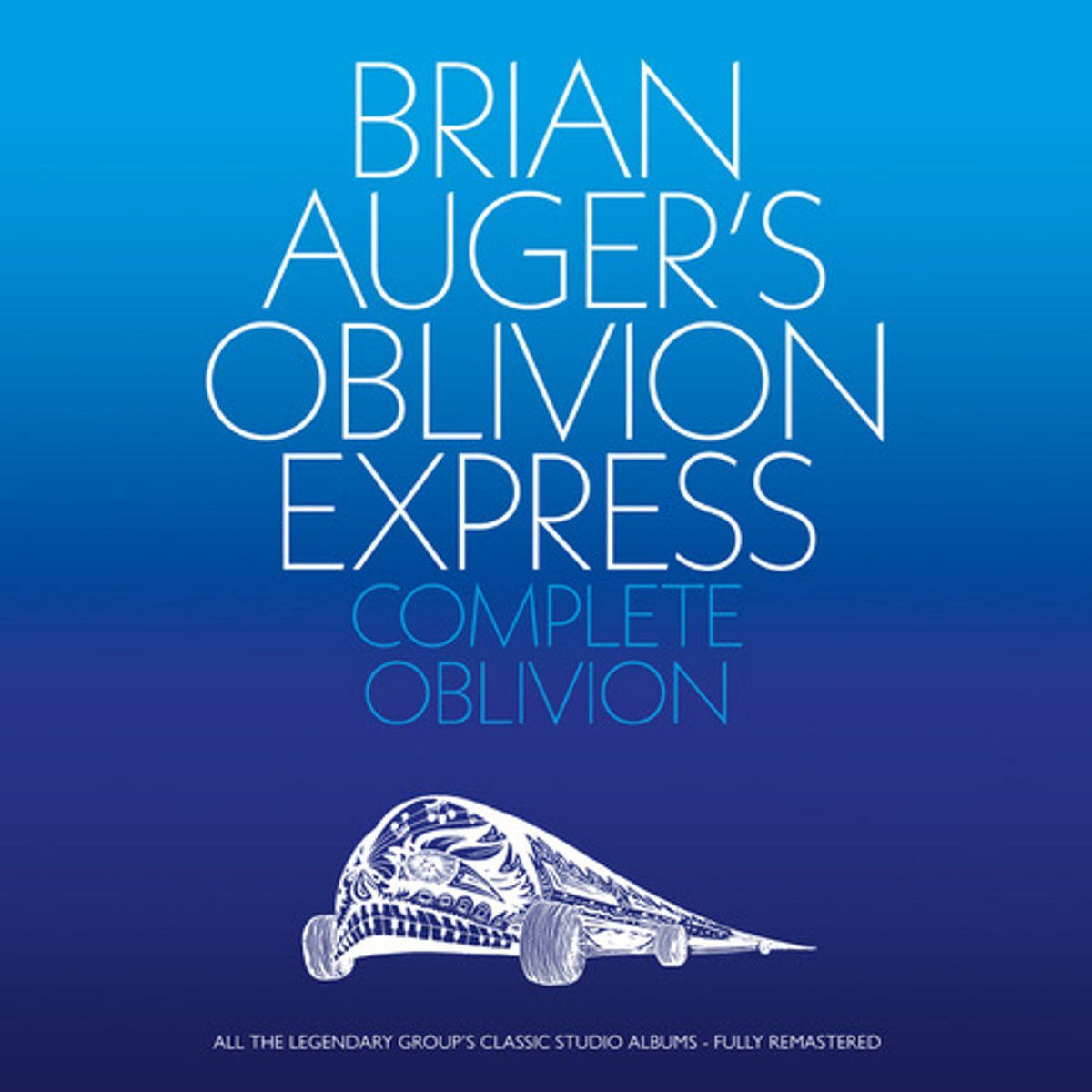Brian Auger’s Oblivion Express
Complete Oblivion
SOUL BANK MUSIC
For artists ranging from Beastie Boys to Herbie Hancock, from Kenny Dope to Gilles Peterson, from every new-school soul-jazz organ trio looking to dirty up its sound to every old-world psychedelic head, Brian Auger and his sensorific Oblivion Express is necessary listening.
Far beyond what Auger executed with dulcet emotive vocalist Julie Driscoll as The Trinity (most famously their fiery cover of Bob Dylan’s “This Wheel’s on Fire”), the molten-lava-like, Latin-laced, space jazz and rocking frantic fusion-funk of his Oblivion Express is otherworldly—for its time, as well as for the present day. Across a handful of albums recorded between their 1971 self-titled debut through to the radical disco of 1975’s Reinforcements—all packaged together in the new Complete Oblivion box set—Auger and his crew found genuine invention through the still-open field of what the Hammond organ could do within the rock, jazz, and R&B idioms. Rather than segregate, Auger consolidated, merging all of soul’s rainbow of hot colors and hotter tones into one tightly rhythmic mess.
Like electric-era Miles Davis, Auger managed to put hard rock and crunching guitars in the foreground of Oblivion albums, especially their debut. Bassist Barry Dean and drummer Robbie McIntosh managed to push the organist’s fuzztone, ripped-amp sound further into the rhythmic red on tracks such as “Total Eclipse” and "Dragon Song”—add Auger’s own gargling-with-razor-blades vocals to this frenzied miasma and the effect was a potent one. No one in organ jazz (save for the legendary Shirley Scott) ever tried bringing vocals into the mix. Auger did so merrily, as the only thing more wicked than his playing abilities is his howling sense of humor.
What’s weirder still about each Auger/Oblivion album until Reinforcements—1971’s A Better Land, 1972’s Second Wind, 1973’s Closer to It, and 1974’s Straight Ahead—is that each one continued with a similar formula, but always managed to sound different and more diverse than its predecessor. That’s not something you could easily say when it came to that era’s giants of fusion, such as Return to Forever and Weather Report. While albums such as A Better Land have a winding yet poppy feel, Second Wind is more deeply grooving. And throughout the Oblivion box’s six titles, Auger and his B3 Hammond—to say nothing of his occasional piano playing—is the wildly windy eye of a very rocky storm.







